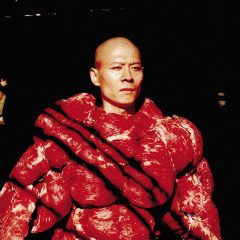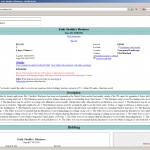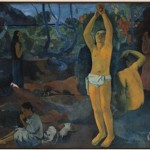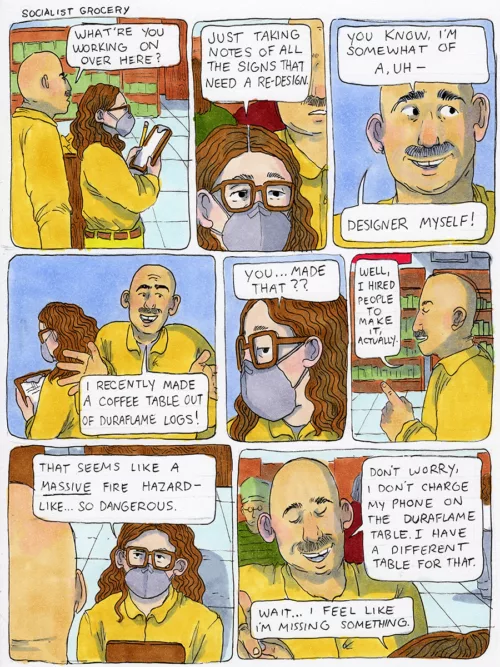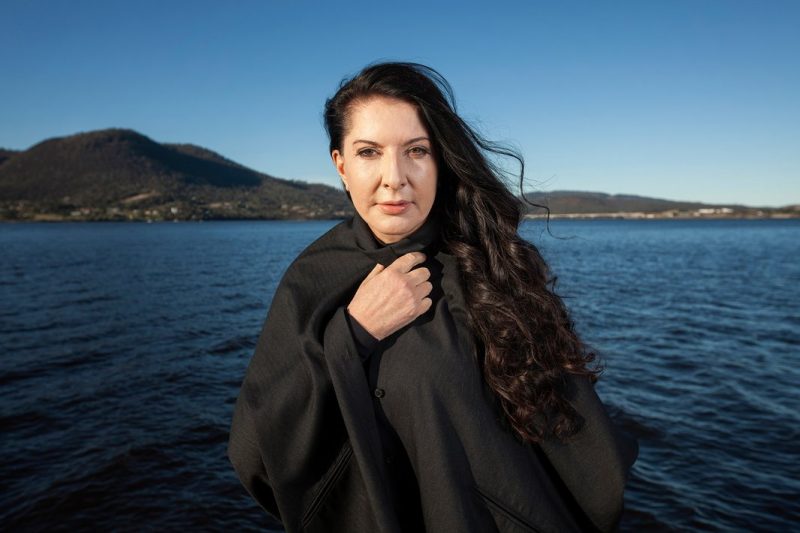
In an upcoming profile book called Walk Through Walls, performance artist Marina Abramović compares a group of Australian Aboriginal peoples to dinosaurs. Here is the direct quote:
“Aborigines are not just the oldest race in Australia; they are the oldest race on the planet. They look like dinosaurs,” the artist muses. “They are really strange and different, and they should be treated as living treasures. Yet, they are not.”
This quotation pulled from an early version of her book has rightly generated a lot of attention including the hashtag #theracistispresent. Abramović later responded with a post on her Facebook page:
I have the greatest respect for Aborigine people, to whom I owe everything. The time I spent with members of the Pijantjatjara and Pintupi tribes in Australia was a transformative experience for me, and one that has deeply and indelibly informed my entire life and art. The description contained in an early, uncorrected proof of my forthcoming book is taken from my diaries and reflects my initial reaction to these people when I encountered them for the very first time way back in 1979. It does not represent the understanding and appreciation of Aborigines that I subsequently acquired through immersion in their world and carry in my heart today.
Before anything else, I think it is good to remember that a personal journal entry from forty years ago needs to be examined within the context of its original use. I sincerely doubt Abramović would make such a statement publicly in 2016. And further, Abramović does admit that the comment “does not represent the understanding and appreciation of Aborigines that I subsequently acquired.”
But still, is this an apology or an evasion?
Let’s be clear, the passage shows that at one time Abramović had the capacity to see a group of humans as something utterly non-human. A perspective that was racist in 1979 and is racist in 2016. Abramović has apparently moved away from this perspective through immersion in their culture. (A more troubling question is whether “immersion” is a requirement to see someone as a non-dinosaur). But for me, Abramović simply distancing herself from this comment and piling reverence on the Aboriginals is not enough. After all, you can respect and admire a group of people and still understand them as less than human. See Paul Gauguin’s disturbing infatuation with with the people of Tahiti or Dr. Barnes idolizing of African art. Abramović through her defensive statement is trying to sequester her racism to a past self and exonerate her current self in infallible righteousness. If she claims responsibility, it is at best a weak claim that belittles the simple and inescapable truth–the racism that produced her journal entry all those years ago is a part of white identity. A terrible truth that needs confrontation, acceptance, and action–not negotiation or qualifications. Those that consider themselves white (myself included) need to acknowledge the systemic racism and oppressive violence that is the bedrock of our constructed racial identity. Without this hard embrace–without ongoing reflection–racism and a whole vibrant spectrum of discriminatory practices will continue to be problems displaced to other times or other peoples.
[ via Hyperallergic ]
Another white artist making headlines with her casual-not-so-casual racism is Vanessa Beecroft. Frequent Kanye West collaborator Beecroft is featured in an upcoming New York Magazine profile saying things like, “I have divided my personality. There is Vanessa Beecroft as a European white female, and then there is Vanessa Beecroft as Kanye, an African-American male.” Check out this piece by LA Times reporter Carolina A. Miranda and be sure to click through to the Art F City link near the end of the article for a complete account of Beecroft’s unsavory history of racial and social commentary.
[ via the LA Times ]
This Roxane Gay opinion essay asks similar (yet heightened) questions of “Birth of a Nation” star Nate Parker as the circumstances of a 1999 rape trial and acquittal resurface. Can we separate the artist from the art? What is the difference between owning your past and removing yourself from it?
[ via The New York Times ]




